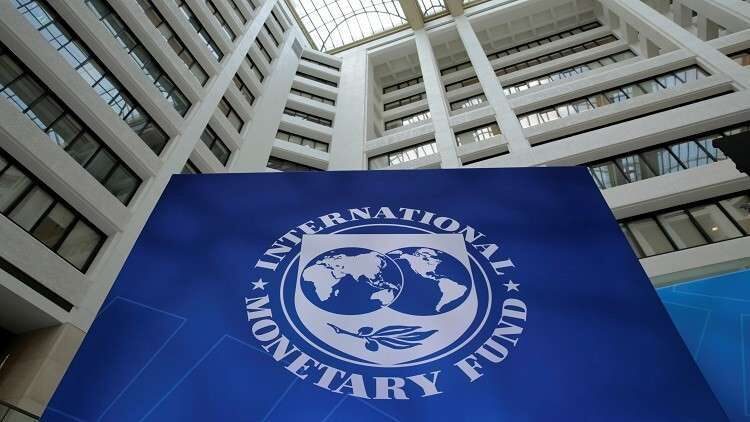This article first appeared in April’s print edition of Business Monthly.
Geopolitical tensions in the region over the past couple of years have affected Egypt’s economy and supply chains, causing macroeconomic disruption and driving up the prices of imported commodities.
That meant tighter monetary policies in Egypt and abroad, limiting fiscal policy’s ability to deliver on its objectives.
Domestic economic policies have added to the pressure. To create jobs and attract investors, the government has been focusing on public investment in infrastructure, critical to solving many of the country’s incumbent problems, such as electricity, gas and roads. Most experts agreed those efforts, however, were costly.
On March 8, AmCham Egypt held a luncheon titled “Egypt’s Economy in Light of Recent Monetary Updates,” featuring keynote speaker Minister of Finance Mohamed Maait. During his talk, he emphasized the importance of cooperation with AmCham Egypt and bridging policy gaps to overcome these challenges.
Short-term steps
The government has a comprehensive package to ensure price stability, stabilize a functioning exchange rate system and implement deep structural reforms. With these measures in place, the IMF has approved an extension of Egypt’s $3 billion fund facility to reach $8 billion over four years. The country also received additional financing from partners, including the EU, World Bank, Japan, and the UK.
“We have already started to deliver on those corrective policy measures,” said Maait, “as we have seen with the CBE (Central Bank) increasing interest rates by 600 basis points and allowing the Egyptian pound’s value to be dictated by market supply and demand. One of the issues was to guarantee that the liquidity is there to meet the demand for foreign currency. The [$35 billion] Ras El Hikma deal gave us the needed liquidity.”
To restore confidence in the economy, the government is focused on sending a message that it has a plan and program to improve fiscal and monetary discipline. Maait cited correcting domestic economic policies that have added pressure to the economy and working to ensure decisions are correct and sustainable. “The business community needed the March 6 devaluation,” Maait said. “They urged us to move with it as quickly as possible.”
Debts, debts
Maait stressed that reducing the government’s domestic and foreign debt levels is a priority, saying there are two definitions of debt exposure. “One is the total external debt of Egypt ($164 billion), which includes … economic authorities, the Central Bank, commercial banks, and state-owned enterprises. The Ministry of Finance “accounts for 50%” of those foreign-currency liabilities.
The Ministry of Finance’s budget includes external and internal debt in local or foreign currency. Its overall exposure is $110 billion. Almost “$82 billion is from foreign-owned institutions, and we lent the rest to local banks.”
Debt sustainability focuses on budget debt and revenue’s ability to reduce that debt. The Ministry of Finance has also reduced its debt-to-GDP ratio from over 100% to 81%, bringing it to the historical range between 75% and 80%. “We can manage the budget if the debt-to-GDP ratio is under 80%,” he said.
However, reaching that 80% target can take time as the government implements structural reforms and allows the floating of the pound. “This year, we have to wait to see how the exchange and interest rates impact the ratio. We will definitely see our import costs and social protection spending increase,” the minister said. “During this correction period, we [might see debt-to-GDP increase until] June 2025. We should … reach our 80% target by June 2027.”
However, reducing debt is not Maait’s most challenging problem. “The big problem is that the cost of financing has more than doubled in the past few years,” he said. “It is now nearly 2.5 times higher than before the currency devalued due to the war in Ukraine. That rise, plus all the internal and external factors, is the biggest problem.”
Macroeconomic conditions exacerbate that problem. “When the economic situation is bad, revenue decreases, and you need to finance the budget by taking loans. The exchange rate and interest rates impact the cost of loans,” Maait said. “Before inflation hit Egypt, our interest payments were between EGP 550 billion and 585 billion annually. This year, our financing cost will be EGP 1.12 trillion or higher.”
The Ras El Hikma project provides the much-needed reprieve for the government. “First, external debt should decrease by around $11 billion as the GCC waives its deposits at the CBE,” Maait explained. “Meanwhile, the incoming new liquidity will increase reserves and can be used to improve government finances.”
Private sector priority
Maait also said the government is committed to slowing down public investments and national projects, limiting them to EGP 1 trillion a year, as requested by the IMF. The Central Audit Authority will ensure compliance, and the country plans to sell state-owned enterprises (SOEs) to the private sector. The focus is on the real economy, including industry, agriculture, FDI, production, exports and privatization.
“The private sector will fill our investment gap,” Maait said. “The latest of our efforts to exit the economy is to leave airport management to the private sector. You will get better service, the private sector will benefit and the government will get a share of those projects’ revenues.
“We are still committed to selling SOEs to the private sector, and the International Finance Corporation is helping us with asset sales,” he added. “We expect to sign deals worth $3.5 billion in the short and medium terms.”
The minister said the Cabinet is fully committed to its policy agenda to attract FDI, increase exports and upskill labor. “The country is taking steps to stabilize its economy, promote private sector-led growth and jobs, and restore confidence in its economy,” Maait said.
Another issue for the private sector is reforming the tax system. “The private sector has complained that state-owned enterprises and other state entities enjoy privileges on tax and customs. We removed those privileges,” said Maait. “Others have stressed the need to rationalize other exemptions to improve the investment environment. We will work on that.”
If changes are implemented, the private sector will know what is new beforehand. “We don’t plan to change taxes or send drafts to the legislature before talking to the private sector first,” he said. We can’t make everyone happy, but we will ensure no surprises. And we will always give leeway in implementation.”
Maait added that there is a “draft income tax law, strategy, and tax policy for 2024-2030. Once we finalize those preliminary versions, we will share them with the private sector. There will be no increase in corporate income tax; it will be lower. The gap between nominal and effective rates will stay the same or decrease. We will introduce some elements to close that gap.”
Stubborn inflation
The government and CBE aim to bring inflation rates back to 7%, plus or minus 2%. Maait said the first step came when the country decreased the budget deficit from 13% to 6% of the total budget. “Without the external shocks we have seen in the past two years, we could have been below 5%,” he said.
Egypt’s persistently high inflation rates (over 30% for the past 12 months) have been particularly hard on low- and middle-income families. “It is a difficult period because we can’t control it, as those events are outside our control,” Maait said. “For example, the Suez Canal lost 50% of its revenue due to external factors. It used to bring $1 billion a year before geopolitical tensions escalated from the Gaza Strip to Yemen.”
To mitigate the negative impact of such high inflation on low- and middle-income families, “the government plans to increase the minimum income tax exemption,” Maait said. “We also allocated EGP 180 billion in the annual budget for social protection. [Its funding will be via] the pension fund, budget reserve and additional finance from parliament.”
However, Maait said, the priority now is to let the private sector invest more in public projects, which is more cost-effective for the government. Maait said the Ministry of Finance is committed to fiscal policy efforts to ensure that projects are eco-friendly and sustainable.
He also stressed his ministry’s success in converting the 40-year-old primary deficit (government revenue before calculating debt repayments) to a primary surplus, which the government has maintained since 2018.
Budget consolidation
Maait noted one of the challenges is Egypt has “59 economic authorities outside the national budget, and they all want to stay that way.”
The national budget is EGP 2.1 trillion, while the revenue from the economic authorities is EGP 2.8 trillion. “The state budget is used by international agencies and organizations, as well as rating agencies, to assess and rate Egypt’s economic situation,” Maait said. “Using only 40% of Egypt’s revenue to judge the entire economy is unfair. Egypt’s public finance indicators should be calculated based on those combined budgets.”
According to the finance minister, the solution is to create a “general government budget by establishing a holding company to hold all the budgets under one authority. Parliament will start discussing this.”
Maait said the integration will be gradual, starting with 40 budgets (revenue plus debts) in the General Government Budget in FY 2024/2025. “We will integrate the remaining 19 in the coming five years after implementing some structural reforms,” he said. “That will make Egypt’s public finance indicators calculated based on the entire economy’s performance.”
The most evident benefit of such a merger would be that the tax revenue will account for less than 35% of the consolidated national budget. “That will greatly benefit Egypt, as taxes are 75% of the main state budget. We will calculate interest payments against a combined EGP 4.9 trillion budget rather than the current EGP 2.1 trillion.”







